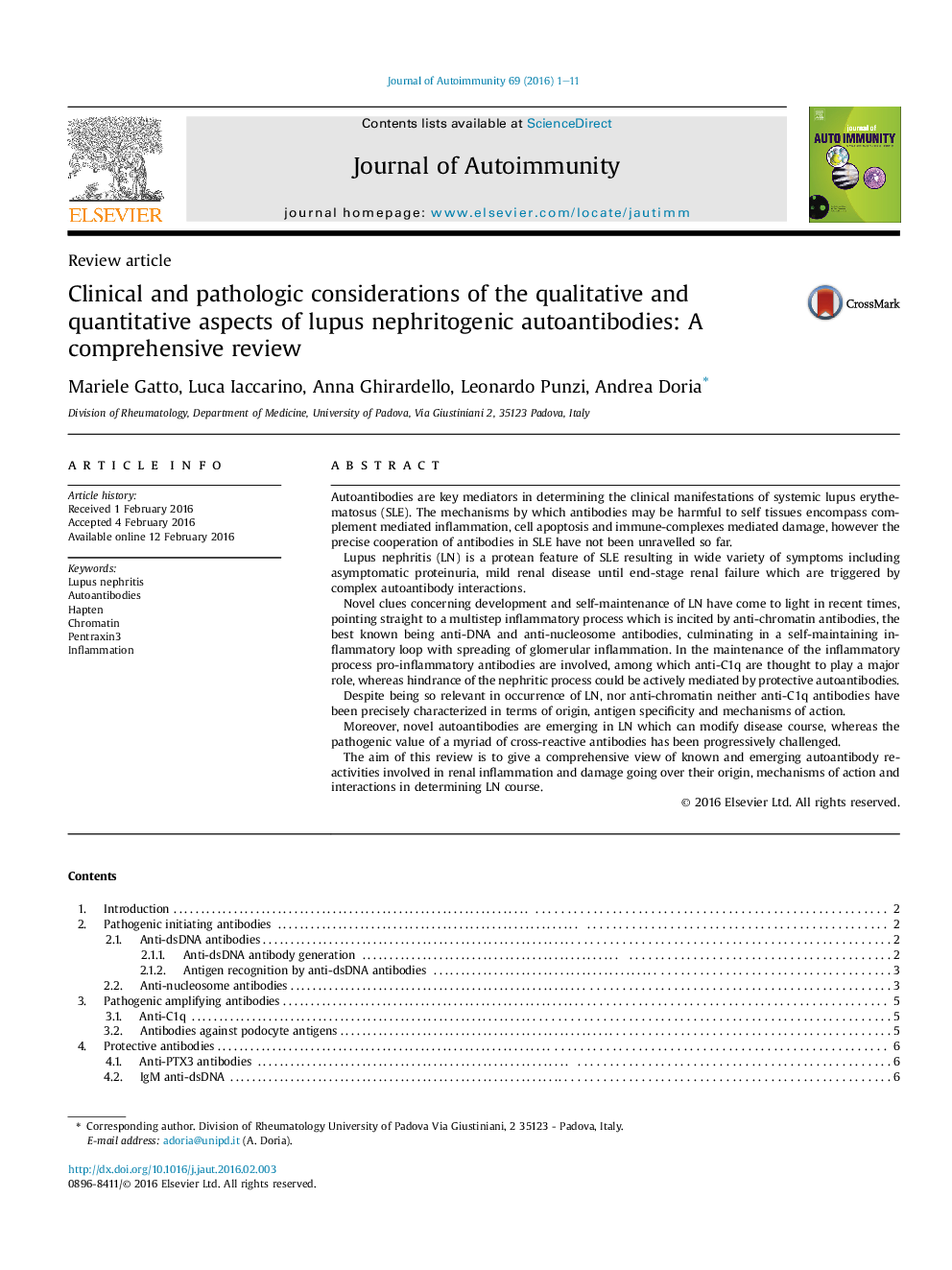| Article ID | Journal | Published Year | Pages | File Type |
|---|---|---|---|---|
| 3367662 | Journal of Autoimmunity | 2016 | 11 Pages |
•LN is mediated by complex interactions between pathogenic and protective autoantibodies.•Initiating antibodies include anti-DNA and anti-nucleosome, while propagating antibodies include anti-C1q opposed to protective anti-PTX3.•The hapten-carrier and the autologous-hapten hypothesis concur to nucleic acids immunogenicity and generation of anti-chromatin antibodies •Anti-PTX3 antibodies may play a protective role by counteracting complement activation.•Cross-reactive antibodies have not been compellingly proven to incite or maintain LN.
Autoantibodies are key mediators in determining the clinical manifestations of systemic lupus erythematosus (SLE). The mechanisms by which antibodies may be harmful to self tissues encompass complement mediated inflammation, cell apoptosis and immune-complexes mediated damage, however the precise cooperation of antibodies in SLE have not been unravelled so far.Lupus nephritis (LN) is a protean feature of SLE resulting in wide variety of symptoms including asymptomatic proteinuria, mild renal disease until end-stage renal failure which are triggered by complex autoantibody interactions.Novel clues concerning development and self-maintenance of LN have come to light in recent times, pointing straight to a multistep inflammatory process which is incited by anti-chromatin antibodies, the best known being anti-DNA and anti-nucleosome antibodies, culminating in a self-maintaining inflammatory loop with spreading of glomerular inflammation. In the maintenance of the inflammatory process pro-inflammatory antibodies are involved, among which anti-C1q are thought to play a major role, whereas hindrance of the nephritic process could be actively mediated by protective autoantibodies.Despite being so relevant in occurrence of LN, nor anti-chromatin neither anti-C1q antibodies have been precisely characterized in terms of origin, antigen specificity and mechanisms of action.Moreover, novel autoantibodies are emerging in LN which can modify disease course, whereas the pathogenic value of a myriad of cross-reactive antibodies has been progressively challenged.The aim of this review is to give a comprehensive view of known and emerging autoantibody reactivities involved in renal inflammation and damage going over their origin, mechanisms of action and interactions in determining LN course.
